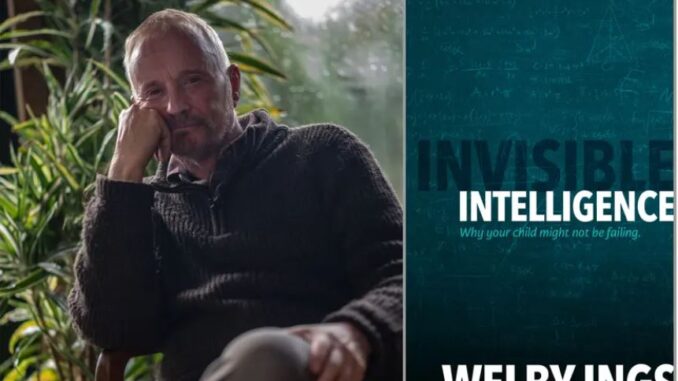
In a school system obsessed with assessment, kids with non-linear intelligence can too easily fall through the cracks, says teacher and writer Welby Ings.
While his twin sister flew “like a sequined acrobat” through the education system, Welby Ings’s “below average” academic performance got him framed as her dumb brother.
In his new book Invisible Intelligence, the AUT design lecturer and filmmaker argues that many bright Kiwi kids are being marginalised due to our outdated understanding of intelligence and how to measure it.
“I love the exquisite diversity and the unevenness of what intelligence is and how people use it in their lives… There is another way of looking at it which is more inclusive but not softer,” Ings tells Nine to Noon.
Over his 50 years as a teacher, Ings has tried to help others understand and work with their own unique forms of intelligence.
“It’s my job to understand how that person thinks. That’s the most important thing for me to do.”
Teachers are like “constant gardeners”, he says, tending a fertile environment that’s home to different kinds of plants growing in different ways.
“Our job is to do two things – make the most fertile environment and stop them getting eaten or damaged so they can grow alongside each other in a world that has to be diverse.”
As a high school student with a measured IQ score “rattling somewhere around 80”, Ings took a long time learning how to read and write.
“My parents had a terrible struggle because they knew that when I was on the farm, I was curious and a little odd, but a really good problem solver. But when I went to school, my spirit died.
“Over time, I became angry and destructive, but underneath that was this deep belief that I wasn’t anything of significance at all.”
In school settings, children learn to protect themselves from exposure, he says.
“And if your dodgy thinking is going to get you exposed, you learn to be quiet and hide.”
Ings’s anger and distrust of the education system led him to start thinking carefully about its “obsession” with testing and assessment, which he says rewards strategy over true learning.
Later, at Teacher’s College, he was taught that the ability to recall information and work quickly were the strongest markers of a child’s intelligence.
This didn’t make sense to him as a student, and as a teacher, he began building a picture of intelligence that was much more complex and diverse.

People who say they’re no good at maths are often actually referring to arithmetic. Ings says – the “very old, limited area of maths” that includes division, multiplication, addition, and subtraction.
In reality, they – and all of us – use complex mathematical thought to make sense of and navigate the world every day.
“On the motorway. I’m estimating my speed, the weather conditions, the distance between me and another vehicle, time… All those things are being pulled into a mathematical way of trying to understand a set of moving proportions so that I can make a good decision. “
While his last book Disobedient Teaching was for teachers, Ings says he wrote Invisible Intelligence for all the people who’ve been set back because their intelligence was “invisible” to others.
“I thought, what would it be to write a book that pulled a lot of research [about intelligence] together, made it accessible, and then put an arm around your shoulder to go ‘Just have another think about this…’.”
Published by RNZ



















































